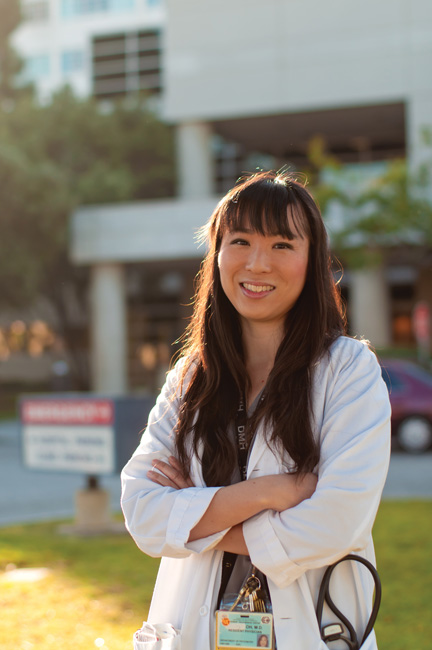by DR. ESTHER OH
Last year, I received an email from a colleague asking if I would be willing to meet with Jamie,* a 14-year-old girl suffering from anxiety attacks. Jamie was hearing voices in her head telling her to harm herself and her family. My colleague, a friend of the family, reached out to me because Jamie’s parents and pastor were looking for a psychiatrist who shared their Christian faith.
Jamie and her parents, I learned, did not believe in mental illness as a medical condition or in psychiatric care as viable treatment. They thought a brain tumor was to blame for Jamie’s symptoms, or believed she was demon-possessed. After meeting with a pediatrician who found nothing amiss, Jamie’s parents turned to their pastor. He strongly urged them to seek out professional mental health services. Because they trusted and respected their pastor, Jamie and her parents were open to meeting with me.
Over time, we started Jamie on medications; she since has been doing very well.
Epidemiologic data regarding the prevalence of mental illnesses among Korean Americans is scarce. Yet based on the cases I have seen throughout my professional career, I feel many Koreans living in the United States experience various emotional, behavioral and psychological problems. Despite this concern, studies reveal that Korean Americans infrequently utilize mental health services. This could be due to a perceived stigma against mental illnesses and treatment; lack of knowledge of available resources; or limited options for culturally sensitive interventions, according to a 2008 article published in Journal of Korean Neuropsychiatric Association.
One thing I’ve learned, however, is that many in the Korean American community turn to other resources to address issues such as stress, depression, anxiety and family-related conflicts. One of those resources is their faith-based support network.
The church has long been a trusted outlet for Korean Americans who identify as Christian. For many congregants, pastors aren’t just delivering a religious message on Sunday mornings—they also are serving as emotional counselors for those dealing with a difficult situation. Yet while church leaders have experience providing spiritual guidance, a recent study conducted by researchers at Baylor University show they do not necessarily feel qualified or prepared to recognize and treat mental health issues.
As a medical professional, I realized the importance of bridging this gap between faith-based leaders and qualified mental health counselors. As trusted and respected figures in the Korean community, pastors are uniquely positioned to serve as the link between churchgoers who could benefit from mental health services and those who are able to provide them. Could there be a way, I wondered, to collaborate with Korean churches to raise awareness around this issue and spread the word about the availability of local and national resources?
I believe so—which brings me to a current effort. In November, I launched a research project with a team of Korean American psychiatrists that focuses on the psychological needs of the younger Korean American population. The project’s aim is to study and identify effective ways for mental health providers to work with youth, high school and college pastors across the country. The ultimate goal is for Korean families to better understand the mental health issues young adults face and to be better equipped to know where and when to seek help.
Through an anonymous online survey, the research team hopes to collect information from pastors nationwide about the various mental health issues they encounter; how often they are asked to counsel or treat these issues; barriers they see in referring church members to mental health providers; and ideas for future collaborations with psychiatrists and therapists in their respective locations.
My team will be collecting responses through early January 2015. If you are a pastor who has or is currently working with Korean youth, teens or college students and would like to participate in this survey, please email me at editor@charactermedia.com.
My colleagues and I hope to have as much input as possible from as many pastors nationwide to ensure we have the most comprehensive data. This will help supply mental health providers with the valuable information they need to develop effective collaboration tools with faith-based institutions and make a maximum impact on the community around this very important issue.
I was lucky to have met Jamie when I did through an introduction from her family’s pastor. Let’s hope in the near future, the lines of communication remain open so that others in a position similar to Jamie’s will get the help they need.
___
*A pseudonym has been used to conceal the identity of the patient.
Dr. Esther Oh, a psychiatrist at the UCLA Neuropsychiatric Institute, writes a regular mental health column for KoreAm. If you have questions, please email her at editor@charactermedia.com. All correspondence will be strictly confidential and only accessed by Dr. Oh. Opinions expressed here represent those solely of the author.







